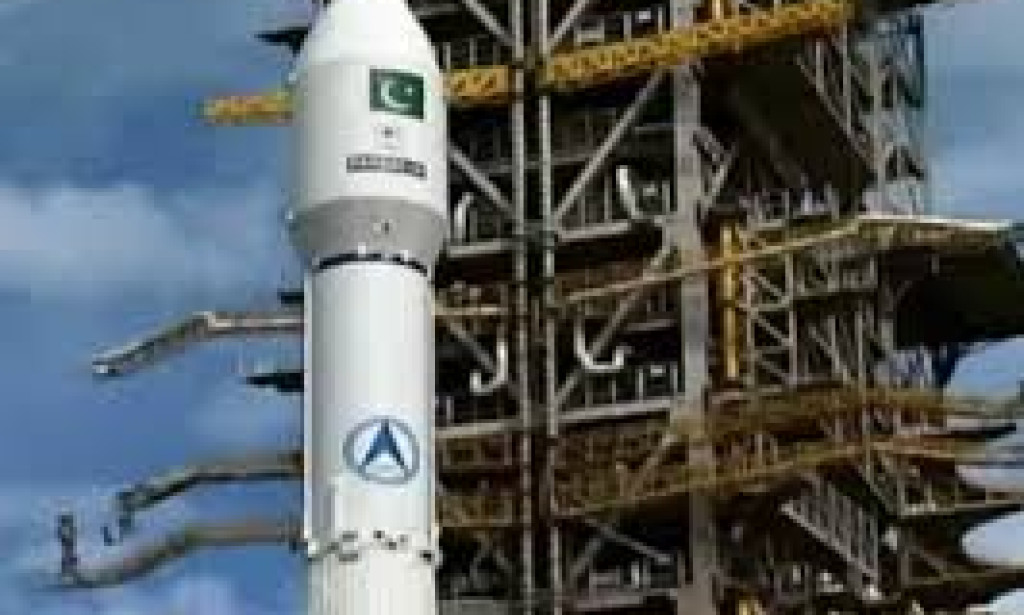The Future of Space Exploration in Pakistan
Pakistan's space exploration program has significant potential, but it faces several challenges. The country’s space agency, SUPARCO (Space & Upper Atmosphere Research Commission), has been working on satellite development and space research since its establishment in 1961. However, compared to global space powers, Pakistan’s progress has been slow due to limited funding, lack of advanced infrastructure, and minimal private-sector involvement.

Current Status of Space Exploration in Pakistan
1. Satellite Development
- Pakistan has launched multiple satellites with China's assistance, including Badr-I (1990) and Badr-II (2001).
- In 2018, PakTES-1A, an indigenous remote sensing satellite, was launched.
- PRSS-1 (Pakistan Remote Sensing Satellite) was also launched in 2018 to assist in agriculture, urban planning, and disaster management.

2. Collaboration with China
- Pakistan heavily relies on China for its space program, with many of its satellites being launched via Chinese rockets.
- The China-Pakistan Economic Corridor (CPEC) has also led to advancements in space-related technologies.
Future Possibilities and Challenges
1. Plans for a Human Spaceflight Program
- Pakistan has expressed interest in sending astronauts into space.
- A human spaceflight program could be developed with China’s help, similar to India’s Gaganyaan mission.
2. Development of a National Space Policy
- Pakistan needs a strong National Space Policy to attract investment and promote private-sector involvement.
3. Emerging Private Sector Interest
- Companies like PakSat International and academic institutions are beginning to show interest in space research.
4. Challenges
- Limited Budget: Compared to India’s ISRO or NASA, Pakistan’s space budget is minimal.
- Lack of Research Infrastructure: More universities and institutions need to be involved in space science.
- Dependence on Foreign Assistance: Most projects depend on China’s technology and funding.
The future of space exploration in Pakistan depends on increased government funding, policy improvements, and private-sector engagement. If Pakistan strengthens its space infrastructure, it can play a more active role in space research, satellite technology, and even human spaceflight in the coming decades.
The future of space exploration in Pakistan depends on increased government funding, policy improvements, and private-sector engagement. If Pakistan strengthens its space infrastructure, it can play a more active role in space research, satellite technology, and even human spaceflight in the coming decades.
The Future of Space Exploration in Pakistan
Pakistan’s space ambitions have remained modest but hold great potential. With technological advancements and increasing global interest in space exploration, Pakistan has the opportunity to strengthen its position in the space sector. SUPARCO (Space & Upper Atmosphere Research Commission) has played a pivotal role in launching satellites, but further development is needed to match regional competitors like India’s ISRO.

The Role of Satellite Technology
Satellites play a crucial role in modern development, and Pakistan has made progress in this area. The PRSS-1 and PakTES-1A satellites, launched in 2018, have improved Pakistan’s capabilities in remote sensing, climate monitoring, disaster management, and urban planning. Future projects could focus on advanced communication satellites, navigation systems, and space-based security solutions to enhance national
infrastructure. 
Potential for a Space Industry
A thriving space industry requires both government support and private-sector involvement. Encouraging startups, research institutions, and universities to participate in space technology can lead to innovations. Pakistan can also benefit from international collaborations with China, Turkey, and Middle Eastern countries to boost its space program.

Vision 2040: A Roadmap for Space
SUPARCO has a Vision 2040 plan that aims to develop indigenous satellite technology, explore deep space research, and eventually work towards manned space missions. With a strong focus on education, investment, and policy reforms, Pakistan can make significant strides in space exploration over the next two decades.




You must be logged in to post a comment.